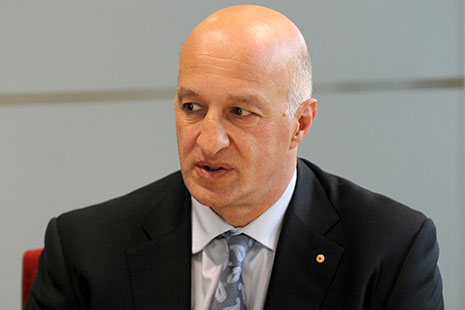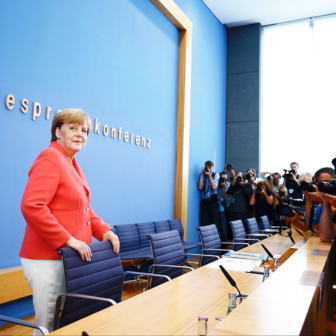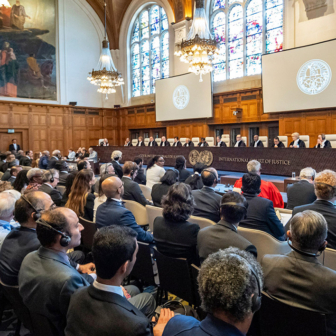AUSTRALIA’s immigration history has been shaped not least by individuals taking a leadership role in relation to controversial and gridlocked issues. After the second world war, Australia’s ambitious immigration program was launched by Ben Chifley’s Labor government and cultivated by Robert Menzies’s Liberal–Country Party government. It dramatically changed Australia’s population in numbers and in appearance. Arthur Calwell, Australia first immigration minister, had a vision of a larger population and personally oversaw the implementation of the necessary policies, from selection in Europe to integration in Australia. Crucially, Calwell and his department persuaded the public, in a broad campaign, of the necessity of the migration increase. In fact, politicians of both sides convinced their constituencies – workers and conservatives, each traditionally sceptical about immigration, and about non-British migrants in particular – of the advantages of large-scale immigration.
Thirty years later, after the abolition of the White Australia Policy, it took the leadership of a new generation of politicians to re-define Australian society once again. With bipartisan support, the Fraser government introduced the new policy of multiculturalism. This idea of diversity within an overwhelmingly “white” country – a country whose population, only a few years earlier, hardly accepted Asians setting foot on its territory – was a bold move that required the transformation of institutions as much as minds, often against grave resistance. Again, governments, first Liberal and then Labor, undertook an information offensive to encourage Australians to embrace multiculturalism. Today, immigration and diversity seem essential to what Australia is, with the occasional debate about how to organise them. Without that earlier leadership Australia would not have its present prosperity and wouldn’t be enjoying what George Megalogenis recently called its “moment.”
Australia is currently confronted with another immigration impasse that requires all the hallmarks of leadership: conviction, action and persuasion rather than scape-goating and partisan bickering. The arrival of “boat people” seeking asylum on Australian shores has led to a series of ad hoc reactions and policies since the first tiny vessel with five Indochinese refugees landed in Darwin in April 1976. In the late 1970s and the 1980s an international effort to resettle Southeast Asian refugees was partially successful in providing a real alternative to perilous journeys across the seas. With the winding down of the Comprehensive Plan of Action in 1989, refugee boats began to arrive again. Detention was introduced as a deterrent for undocumented migrants, and became mandatory for those arriving by boat, but the number of boat arrivals nonetheless rose. The Pacific Solution, introduced in 2001, went further, processing asylum seekers offshore to remove their right of a fair process, and initially reduced their opportunities to find protection in Australia. In each case, the policy was a spontaneous and short-term response with little view to the long-term implications, for refugees or for Australia.
The expert panel on asylum seekers, which was appointed by the government in June this year and asked to report before parliament opens next week, is presented with a great opportunity to learn from the long history of policy failures and to make suggestions that go beyond populist quick fixes. Asylum policy, seemingly complex and yet in many ways straightforward, requires real leadership. The panel can give guidance and an opening for politicians to step out of the trenches of partisanship. Otherwise, the current conflict is one in which all stakeholders are set to lose.
The panel needs to be honest with parliament and the public. It should admit that no actions will stop unauthorised boat arrivals, at least not in the short or medium term, no matter what political advisers promise. As long as heading to Australia in a rickety vessel is the only realistic option for some people to find safety, they will take their chances. Rather than losing itself in detailed recommendations that will once again plug a hole in a failed policy of deterrence, the panel members should step back and look at the big picture of asylum. They have the opportunity to map out the broad direction in which Australian politicians can lead the debate. Members of the government and the opposition need to take leadership on these issues in three ways – domestically, regionally and globally – to improve not only the lives of forced migrants but also the political atmosphere in Australia. Here are three things they should do.
Domestically, politicians must stop using “boat people” as a scare issue and acknowledge that the arrival of a few thousand asylum seekers by sea is not a security threat and not a challenge to Australia’s sovereignty. Terrorists would not travel by leaky boat, especially if they planned to arrive safely and undetected: they would be subject to the most detailed security checks by ASIO, more so than if they travelled legally on student or tourist visas. But don’t take it from me. Two of the three members of the expert panel – Air Chief Marshal Angus Houston and Professor Michael L'Estrange – are security experts, and they can give credible backing to this argument. In the foreseeable future, moreover, the number of boat refugees will not be significantly higher than at the moment. Anybody who wants to chance the uncertain trip to Australia would undertake it now before access might be more restricted.
Asylum seekers are managed by the border and immigration administration with the Australian navy and migration officials experienced and well-equipped to deal with refugees arriving by boat. This is not to say that practices like detention and the processing on Christmas Island should not be debated among experts and possibly amended. But ultimately, playing politics with asylum seekers undermines not just Australian and human rights values; with repeated cries about apparent “wolves” at the border, the credibility of the democratic process itself is at risk. This is also why any hardline policies or bad compromises will invariably fail within years, as they always have, because they respond to problems that do not really exist. Real leadership requires the bravery of honesty, calling out the hollowness of refugee scares and making clear that the arrival of boat refugees is something that Australia is not threatened by but well prepared to handle.
Regionally, Australia should become a human rights leader, even more so than already, and not just for the sake of refugees. By linking people smuggling to the criminal business of human trafficking – two quite distinct practices – Australia contributes to the mistreatment of forced migrants. At the moment, the Australian government spends its diplomatic cachet on pressing regional partners to implement hardline policies to disrupt the networks that faciliTate irregular migrants journeying to Australia. This leaves many of those seeking protection in limbo and, inadvertently, intensifies their need to continue to the safe territory of Australia. Only when forced migrants feel that they can build a secure future for their families in what are now transit countries in Southeast Asia will they have better alternatives to undertaking the risky journey to Australia. To reach this long-term goal, Australia should insist on the implementation of human rights in the region rather than further criminalising irregular migration. Rather than pressing governments on the issue of rights, which can easily have the opposite effect, it is important to support human rights at a grassroots level.
Again, the expert panel is well suited to advise on such policies. I would suggest assisting local rights advocates and NGOs as well as interacting with the regional leaders of tomorrow by sponsoring human rights courses for university students from the countries in question. Only where stable civil societies are established can refugees find safety too. Playing a part in this shift would also have the additional advantage of gaining recognition for Australia as a principled leader, supporting the people in this increasingly contested region independently of larger powers.
Globally, Australian politics should do what many politicians and commentators have suggested all along: radically increase the humanitarian intake and extend the resettlement program. This alone won’t solve the refugee problem, of course. Sydney University’s Stephen Castles, former director of the Refugee Studies Centre at Oxford University, has calculated that at the current rate of global resettlement it would take seventy years to resettle all the 7.1 million refugees who have little prospect of returning to a safe home – and this is excluding all the refugees who will require protection in the years to come. But an increase in the resettlement program would make a great difference to many individual refugees, as expert panel member Paris Aristotle, director of the Victorian Foundation for Survivors of Torture, can surely testify. It might even inspire other countries to follow the Australian example, including countries in Europe that don’t have resettlement programs. More importantly, such an act of international leadership would contribute to creating the context for making progress on the issue domestically and regionally. It would signal to the Australian public and regional partners that refugees are not a threat and that Australians are serious about human rights.
Only if politicians are willing to put aside imagined electoral gains, if they are honest about the minor impact the arriving refugee boats have on a wealthy country like Australia, and if they get serious about human rights at home and overseas, can they offer credible and effective leadership on asylum. Over time, this might yield results in reducing the number of refugee boats; more immediately, it would take asylum seekers out of the line of fire of partisan politics. Moreover, it would resolve the current crisis about asylum and pave the way for more effective policies, domestically, regionally and globally. The expert panel can reframe the debate and politicians can step up to be leaders with a bold and fair vision, the willingness to enact the necessary and controversial policies, and the determination to persuade the Australian people of what is just and right. With such acts of leadership Australian history can once again be shaped for the better. •
J. Olaf Kleist currently teaches theories of migration at Free University of Berlin. His PhD dissertation examined the relationship between the politics of memory and the politics of migration in Australia.




